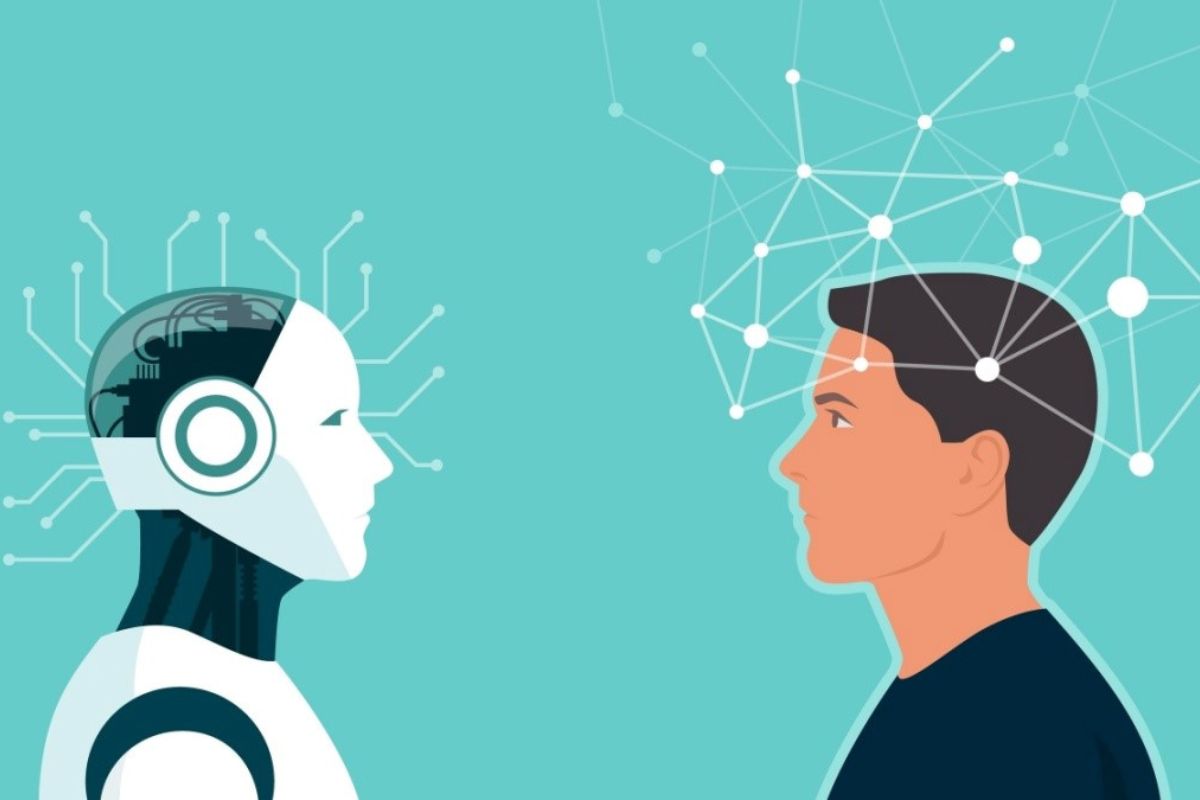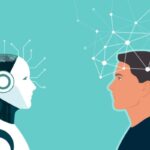What AI Can’t Do: Why Human Entrepreneurs Will Always Win

Artificial intelligence (AI) has come an incredibly long way in recent years. From chatbots to drone deliveries, it’s difficult to find something AI can’t do these days. Its capabilities have grown so immensely and quickly that it sparked a fear of ‘stealing’ certain human jobs.
Business owners have some concerns, too. Research by the British Chamber of Commerce shows that only 25% of UK organisations use AI technology, and 43% don’t intend to. Many say AI is too complicated, and some worry about potential costly errors.
AI is undoubtedly powerful and can benefit businesses in many ways, but there are certain things it will never be able to do. Below, the UK’s leading company formation agent, 1st Formations, explains more about the human traits that make entrepreneurs superior.
Table of Contents
ToggleAI Lacks Creativity and Vision
AI learns and evolves from human input. If you’ve ever used ChatGPT, where do you think the chatbot’s answers come from? It’s a mixture of sources, including the internet, which is populated by humans, and books, written by humans. It also relies on continuous interactions to improve and provide more accurate responses.
However, this means that AI lacks that crucial creativity and forward-thinking vision that humans are naturally and independently capable of. At any given moment, we can come up with original ideas and think outside the box. Meanwhile, AI is very much constrained to the boxes we provide.
And it’s precisely this creativity and innovation that means human entrepreneurs will always win over AI. Take Apple’s Steve Jobs or Amazon’s Jeff Bezos as classic examples of human-powered innovation.
Humans Have Emotional Intelligence
Next is emotional intelligence. Again, no matter how much AI evolves, we’ll never be able to program it to respond naturally to human emotions. It might be able to recognise tones and styles and even imitate certain feelings, but humans will always win with genuine emotional intelligence.
This matters for entrepreneurs, especially, as businesses thrive on relationships and trust. For instance, let’s consider customer service, a cornerstone of a successful business.
Imagine a distressed customer visits your website, where a chatbot greets them. They explain they’ve made an accidental order or have been charged more than expected.
The chatbot might pick up on keywords like ‘order’ or ‘payment’ and offer a generic response, such as order tracking information. Not only is this unhelpful to the customer, but it also makes them lose trust in your company immediately.
On the other hand, a professional telephone answering service would recognise the customer’s distress. They’d reassure them and offer practical support and perhaps a gesture of goodwill.
AI can’t pick up on these unexpected situations. It functions on logic and data, which isn’t always practical or effective. Meanwhile, entrepreneurs need emotional intelligence to lead, inspire, and negotiate.
Humans Can Take Risks
We’ve discussed that AI relies on data and interactions with humans. Its lack of independent thought means that, unlike human entrepreneurs, AI can never take risks or make decisions based on gut instinct.
Whether you’re an existing or aspiring entrepreneur, you’ll know that business involves an element of risk-taking and trusting your intuition. These abilities allow humans to take leaps of faith, defy expectations, and make bold decisions.
AI Fails to Adapt in Unpredictable Environments
There’s no doubt that AI can adapt. It does so by learning from its experiences. What it can’t do is adapt in unpredictable environments; it needs time to improve.
Going back to the simple example of ChatGPT – if you were to ask the chatbot a question it hadn’t been asked before, it wouldn’t be able to answer. Well, it would answer, but the response would be flawed.
Or let’s take Alexa, Amazon’s voice-activated AI assistant, as another example. There are countless videos on the internet showing Alexa’s inability to understand certain accents. And when AI doesn’t understand the input it’s given, there’s simply nothing it can do at that moment; it needs multiple experiences of that input to adapt.
In contrast, human entrepreneurs can learn quickly from failure. This is crucial for building resilience that strengthens their organisation and themselves as business owners.
AI Doesn’t Consider Ethics or Morals
Other vital qualities that AI lacks are ethics and morals. Machines work on basic input and output systems without any ethical judgement in the process.
However, human entrepreneurs can apply their personal values to their ventures and use their moral compass to make decisions rather than relying on mere data. As a result, human entrepreneurs can develop long-term business sustainability and practise ethical leadership.
Conclusion
AI is a powerful business tool, and human entrepreneurs should use it to expand their organisations and operate more efficiently. Whether you need help improving your customer service, producing content, or streamlining workflows, AI’s capabilities are immense.
Are you ready to become an entrepreneur? Get started with 1st Formations’s quick and easy online registration process. Simply choose your ideal company formation package and complete your company details, and their experts will do the rest.
But no matter how much AI evolves or how many jobs it replaces, human entrepreneurs will always win with creativity, emotion, intuition, quick adaptability, and ethics.
As AI continues to evolve, its role in business will expand, but it will always remain a tool rather than a replacement for human ingenuity. The true power of entrepreneurship lies in human creativity, resilience, and ethical decision-making—qualities that no machine can replicate.
Published by Seren Reynolds
Hi, i am a digital marketer with over 5 years of experience. I specialize in using online platforms and strategies to help businesses grow and engage their audiences. View more posts







